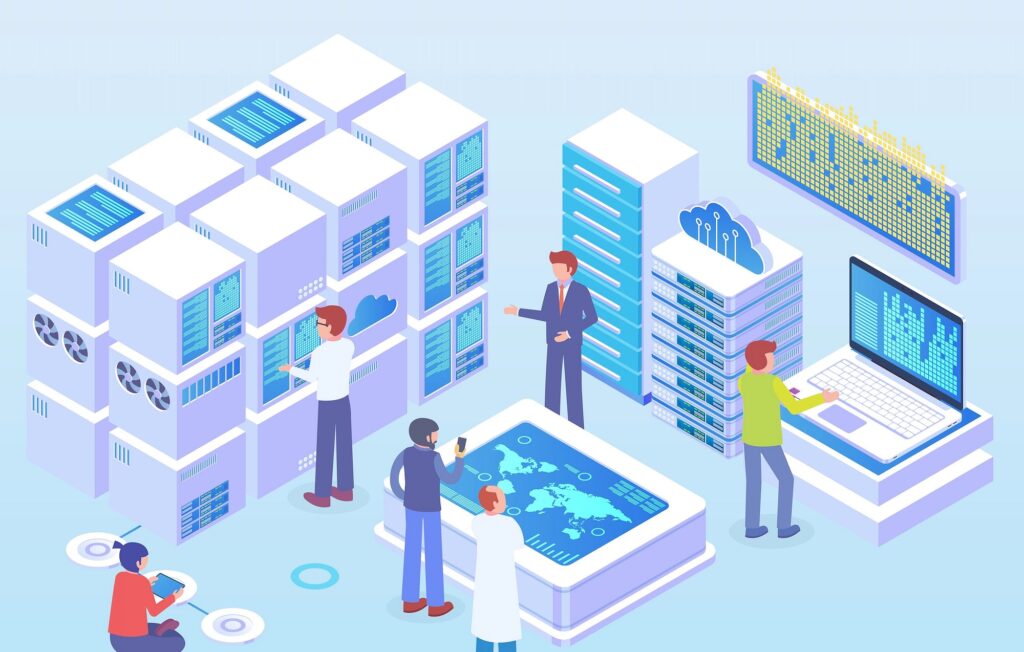
4 Innovative Technologies that will Benefit Businesses in 2024
In 2024, the acceleration of technology trends due to the onset of COVID-19 will continue. The pressures that COVID-19 placed on businesses forced that to adapt and implement new technologies to cope; digital transformations occurred en masse, allowing organisations to support remote working for all of their users – but many businesses found that digitizing areas of their business had other benefits on top of keeping their users safe.
We spoke to TechQuarters, an organisation in London that went remote at the onset of COVID-19, and who also helped their customers digitally transform to a point at which they too could support effective remote work models within their organisation. They listed some of the innovative technologies that they felt will be major trends in 2024. Some of these technologies are already being implemented, but it is likely that they will become much more widespread – with the demand for better remote and hybrid working, and the lower costs associated with these technologies, it will become easier for businesses to incorporate new technologies.
1. Artificial Intelligence

AI is a fascinating field of research that many people may not realised is already being implemented in many different ways. The ability to train a computer to think and learn in an adaptive way can have a lot of benefits for business.
To start with, AI provides businesses with the ability to process huge amounts of data, and interpret it in short amounts of time. AI is just like all computers – the margin of error when performing tasks is infinitely smaller, when compared with humans; and for this reason it is capable of working its way through data much quicker and more accurately. Big Data is a valuable resource for business, but it is inherently difficult for people to interpret – thus, recruiting AI to process it allows businesses to reap the benefits.
Another excellent use of AI for business is in Business Process Automation. Manual, repetitive chores in business are basically unavoidable, and when humans do it, they are likely to make errors while performing the task. On the other hand, AI never gets bored, and so it can perform tasks in an identical way every time, and never make any errors – additionally, they can perform digital tasks quicker than humans, because they do not need the same interface humans need to use computers (e.g. keyboards, mouses, and monitors).
2. Internet of Things

Another innovative technology that will see lots of benefits to business this year will be the Internet of Things. This is the ever growing network of smart devices that are capable of exchanging data with one another, as well as relaying data to a centralized computing platform located in the Cloud. An IoT devices contains the means of storing and computing data, as well as its own internet connectivity – consumer products like smart fridges and self-driving cars are enabled through IoT networks. But what are the benefits of this technology for businesses?
Embedding IoT technology into hardware makes tracking and monitoring their performance much more accurate – you get real-time data, 24/7. For example, TechQuarters said that IoT could be used to monitor an organisation’s network infrastructure, to predict when a fault is likely to happen, which can make supporting the infrastructure more efficient. This type of implementation is also utilized in industries such as healthcare (where hardware function is critical), and also in manufacturing.
Another business benefit is that IoT assets generate lots of data, which can be processed and analysed to gain insights that may be useful for business decision-making. IoT also have a vast range of benefits for e-commerce; it can enhance user experience, improve customer service, and make inventory optimization better.
3. Blockchain Technology

The world has been transfixed with blockchain, in the form of cryptocurrencies, for a very long time. Blockchain is a technology that involves creating distributed ledgers – a consensus of shared and synchronized digital data that is spread over multiple sites, countries, or institutions. The benefit of having a distributed ledger is that there is no centralized administrators, which means data is verified in a decentralized way, making it much harder to alter information in a blockchain. For these reasons, blockchain is a very secure form of technology – in fact, it is built off a number of cryptography principles.
The main application of blockchain technology is that one is capable of performing transactions with unknown parties, in a zero-trust environment, meaning companies can do business without the assistance of financial institutions, but in a safe and secure way. But the potential for blockchain technology goes beyond finances. It is already disrupting all kinds of industries – such as gaming, government, and (as previously mentioned) finance.
One example of how blockchain is being implemented in other industries is with Walmart’s supply chain database application. It allows them to monitor products and trace them back to their source – the hope with this application is that will increase food supply standards.
4. Containerisation

There is increasing pressure for businesses to start developing their own applications to meet demands in their organisation, and with more and more businesses going remote, and possibly building a workforce that is distributed all across the world, a critical focus within DevOps will be ensuring that all users can be equipped with the company’s applications. An innovative new technology that has already garnered notable advantages for development teams is Containerisation.
Containerisation is the technique of packaging applications, including all of their dependencies, abstracting them to remove any platform-specific elements, and thus making it possible to run an application on any platform. The trouble with traditional development is that software needs to be re-developed for new platforms – but with containerisation, development teams can now develop software once, and run it on any platform.
This technology has a number of uses. For one thing, it means IT teams can roll out applications to users no matter what platform there are using. It also means that applications can be installed on servers without the need for kernels, thus saving on storage and processing demands.
